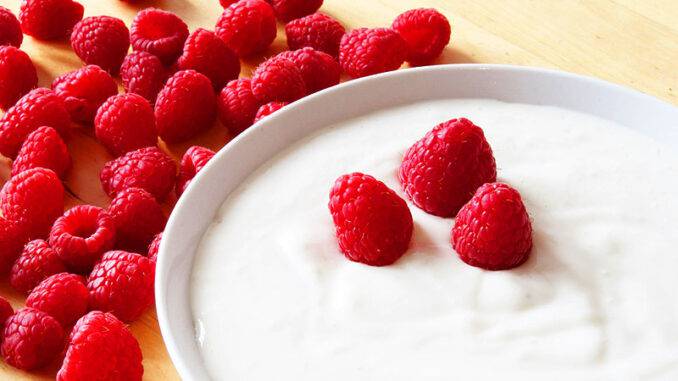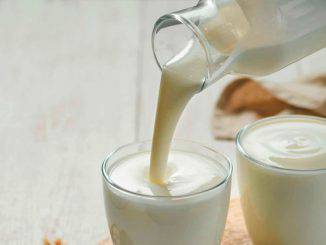
Milk Kefir has become increasingly popular in recent years due to its potential health benefits, including improved digestion, strengthened immune system, and enhanced nutrient absorption. However, there is some debate about which type of milk Kefir is better for your health: full-fat or low-fat.
Full-Fat Milk Kefir
Full-fat milk Kefir is made with whole milk, which contains about 3.5% fat. This type of Kefir is richer and creamier than low-fat Kefir, and it has a higher calorie count. Full-fat milk Kefir also contains more saturated fat, which has been linked to an increased risk of heart disease.
On the other hand, full-fat milk Kefir is also rich in vitamins A and D, which are fat-soluble vitamins that are essential for healthy bones, teeth, and immune function. Additionally, full-fat milk Kefir contains conjugated linoleic acid (CLA), a type of fat that has been shown to have anti-inflammatory and anti-cancer properties.
Full-fat milk contains significant amounts of macronutrients (carbohydrates, protein, and fat) and micronutrients (vitamins and minerals). Here are the approximate nutritional facts for a one-cup (240 ml) serving of full-fat milk:
- Calories: 149
- Fat: 8 grams
- Saturated Fat: 4.5 grams
- Cholesterol: 24 milligrams
- Sodium: 105 milligrams
- Carbohydrates: 12 grams
- Fiber: 0 grams
- Sugar: 12 grams
- Protein: 8 grams
- Vitamin D: 24% of the Daily Value (DV)
- Calcium: 29% of the DV
- Vitamin A: 10% of the DV
- Riboflavin (Vitamin B2): 26% of the DV
- Vitamin B12: 18% of the DV
- Phosphorus: 22% of the DV
- Potassium: 11% of the DV
It is important to note that the nutritional content of full-fat milk can vary depending on factors such as the breed of cow, the cow’s diet, and the processing method used to produce the milk. Additionally, individuals with lactose intolerance or dairy allergies may need to avoid or limit their intake of full-fat milk.
Low-Fat Milk Kefir
Low-fat milk Kefir is made with skim or reduced-fat milk, which contains less than 1% fat. This type of Kefir is thinner and less creamy than full-fat Kefir, and it has a lower calorie count. Low-fat milk Kefir also contains less saturated fat than full-fat Kefir, which may be beneficial for heart health.
However, low-fat milk Kefir is also lower in vitamins A and D than full-fat Kefir. These vitamins are essential for healthy bones, teeth, and immune function, so a diet that is low in these nutrients may increase the risk of certain health problems.
Low-fat milk is a dairy product that has had some or all of the fat removed, resulting in a lower calorie and fat content compared to full-fat milk. Here are the approximate nutritional facts for a one-cup (240 ml) serving of low-fat (1%) milk:
- Calories: 102
- Fat: 2.4 grams
- Saturated Fat: 1.5 grams
- Cholesterol: 10 milligrams
- Sodium: 107 milligrams
- Carbohydrates: 12 grams
- Fiber: 0 grams
- Sugar: 12 grams
- Protein: 8 grams
- Vitamin D: 24% of the Daily Value (DV)
- Calcium: 29% of the DV
- Vitamin A: 10% of the DV
- Riboflavin (Vitamin B2): 26% of the DV
- Vitamin B12: 18% of the DV
- Phosphorus: 22% of the DV
- Potassium: 11% of the DV
Which Kefir is Better for Your Health? Full-fat or low-fat?
The answer to this question depends on your individual health needs and goals. If you are trying to reduce your calorie intake or limit your saturated fat consumption, low-fat milk kefir may be a better choice for you. However, if you are looking to increase your intake of vitamins A and D or CLA, or if you prefer a creamier and more satisfying beverage, full-fat milk kefir may be a better choice.
It is worth noting that both full-fat and low-fat milk Kefir are generally considered to be healthy beverages, and both offer potential health benefits. The fermentation process involved in making Kefir results in the production of beneficial bacteria and yeasts that can improve gut health and support the immune system. Additionally, Kefir is a good source of protein, calcium, and other important nutrients.
Ultimately, deciding which type of milk Kefir to consume comes down to personal preference and individual health needs. If you are unsure which type of Kefir is best for you, it may be helpful to consult with a healthcare professional or a registered dietitian who can provide personalized advice based on your specific health concerns and goals.
In conclusion, both full-fat and low-fat milk Kefir offer potential health benefits, and the decision about which type to consume depends on individual needs and preferences. Whether you choose full-fat or low-fat milk Kefir, incorporating this fermented beverage into your diet can be a delicious and nutritious way to support your overall health and well-being.



